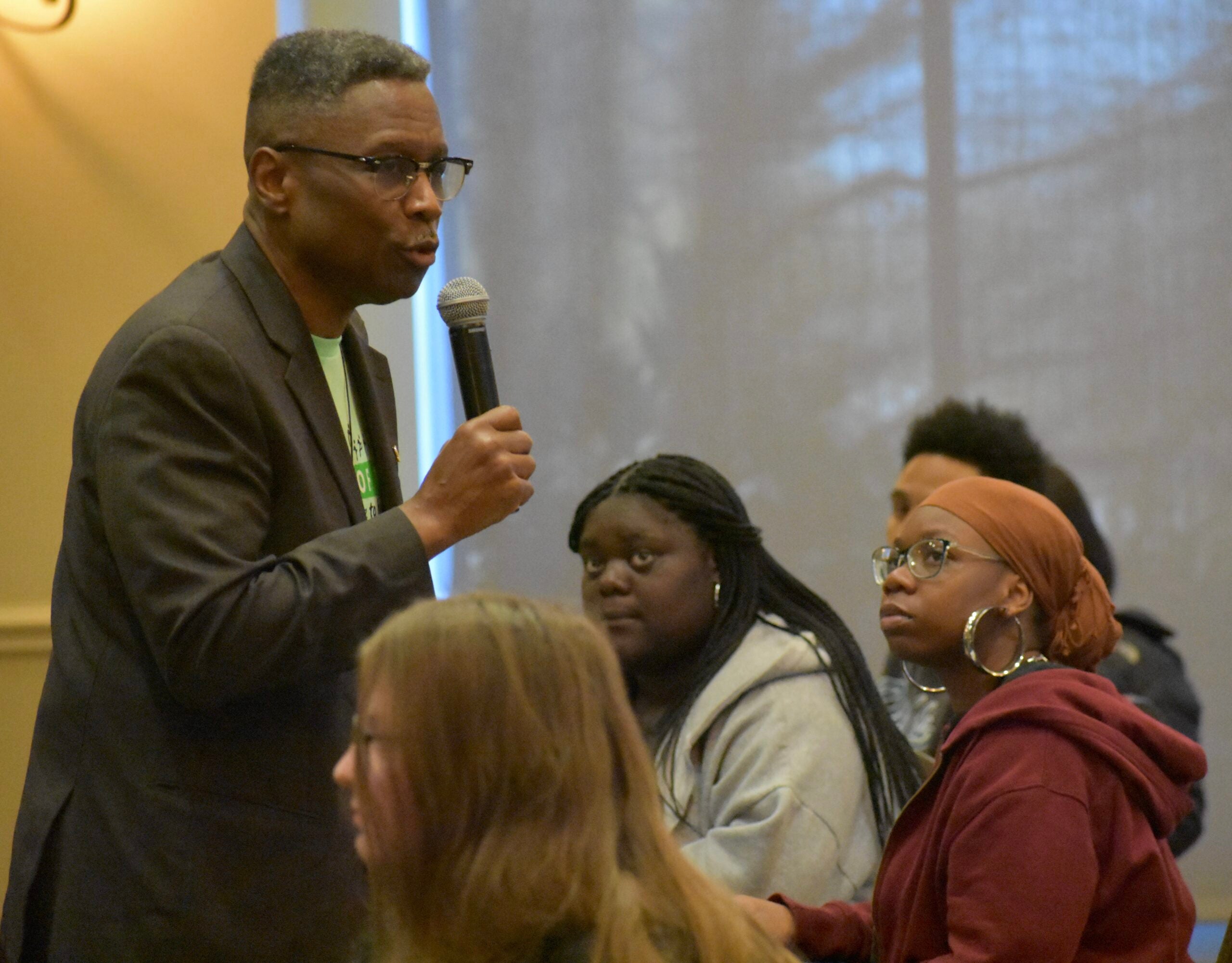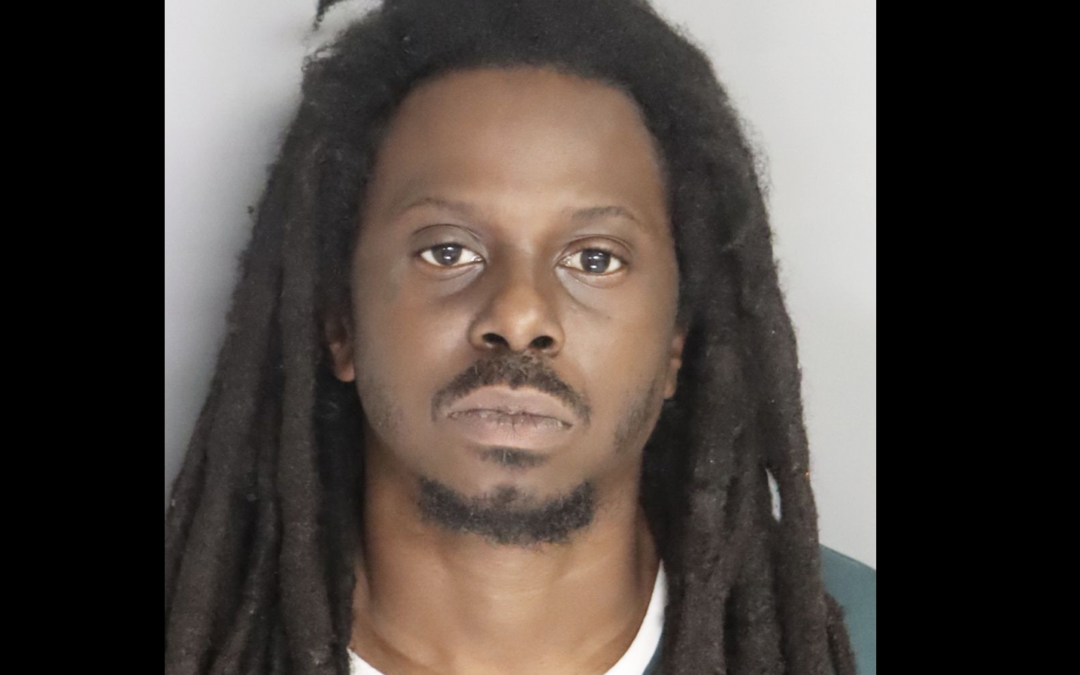Through a “Journey of Hope: From Violence to Healing” speakers’ tour, Augusta University partnered with local organizations to discuss the societal impact of the death penalty on Monday evening, Jan. 29.
Inviting the public and university students to hear a program about hope and forgiveness, Journey of Hope, Georgians for Alternatives to the Death Penalty, Conservatives Concerned about the Death Penalty, Faith Leaders of Color (FLOCC), as well as Augusta University’s Pamplin College’s Department of Social Sciences and the Criminal Justice Club partnered to host the event in the Summerville Campus’ Jaguar Student Activities Center.
Pulling from his own experience with trauma and tragedy, keynote speaker Rev. Jack Sullivan Jr. told listeners how his faith and his younger sister’s murder largely shaped his opinion against the death penalty.
MORE: Rep. Rick Allen gets involved in Augusta Land Bank controversy
Sullivan shared how his sister Jennifer Ann McCoy was murdered on July 30, 1997, at age 21, and left behind a 2-year-old daughter.
“She had been shot to death in her home … that news changed my life forever,” he said. “Let me tell you, when you see what a bullet does to a body, you can never unsee it. It changed me forever and I wish sometimes I had never viewed her body.”
However, Sullivan said life had to go on because decisions about the care of McCoy’s daughter – Imani – had to be made, and funeral expenses needed to be paid.
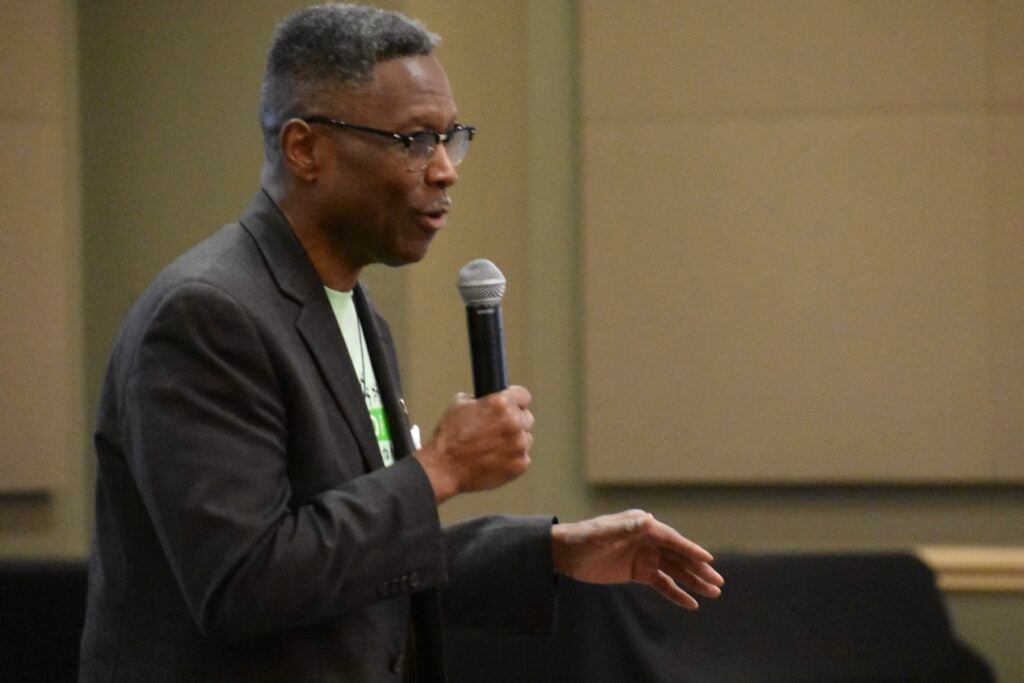
Although McCoy’s killer was never identified, on the path to healing, Sullivan said he struggled with his feelings regarding the capital punishment.
“I heard arguments from others that people like us, who lost loved ones to murder, ought to consume ourselves with revenge and retaliation – that eye for an eye thing,” he said. “People said and implied that we were justified to wish death upon the person who had killed Jennifer.”
Choosing to not look backwards in hate but move forward, Sullivan said his family grieved with hope in their hearts, and the feeling has since remained with him.
“We had Christian faith that somehow reminded us of the love of God that would see us through even the most painful moments and the most horrific circumstances,” he said.
Met with continual responses of vengefulness from others who sought justice for McCoy’s death, Sullivan said he later realized that the death penalty would not bring his family any sort of healing.
“It does not offer us any healing, any restoration, any wholeness, any redemption, and it definitely doesn’t offer us any closure,” he said. “Because there is no closure for us … the death penalty offers nothing for families. It keeps us looking backwards forever and ever.”
For Sullivan, teaching citizens to justify death could only lead to creating like minded individuals who utilize a similar “warped value system” to that of killers.
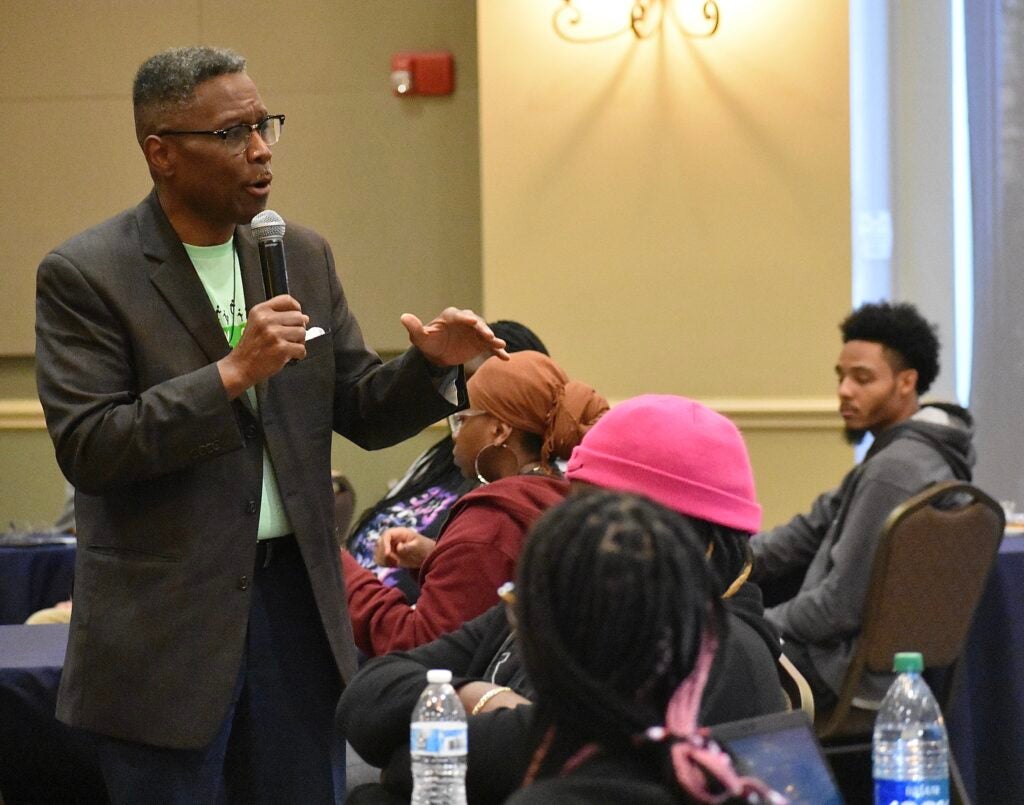
“I don’t want the state to have the same value system of Jennifer’s murderer. I expect the state to be better than that – to never surrender the moral high ground that it claims to have,” he said. “… I want the state’s moral and ethical value system to not reflect murderers.”
Emphasizing humane accountability and reallocating capital punishment funds, Sullivan said he hoped attendees united in choosing life rather than enforcing death on others.
“The best way to honor people like us, my sister’s memory and anyone else’s life who was slain is not to invest in systems and cycles of death, but to invest in systems and cycles of life,” he said. “Show folks, even those who may not deserve it by our standards, love and compassion.”
After Sullivan’s talk, students and other attendees took turns asking questions, many of which questioned the reality of implementing a different, long term punishment from the death penalty.
While some participants expressed concerns about the monetary cost of containing inmates for life and whether or not saving one serial killer would truly protect society, Sullivan’s answer of “love and compassion” remained a constant throughout the night.
Meanwhile, contrary to popular belief, Minor said states have actually spent millions on capital punishment and related cases. Funds that he believes should be funneled towards better police training, community programs and
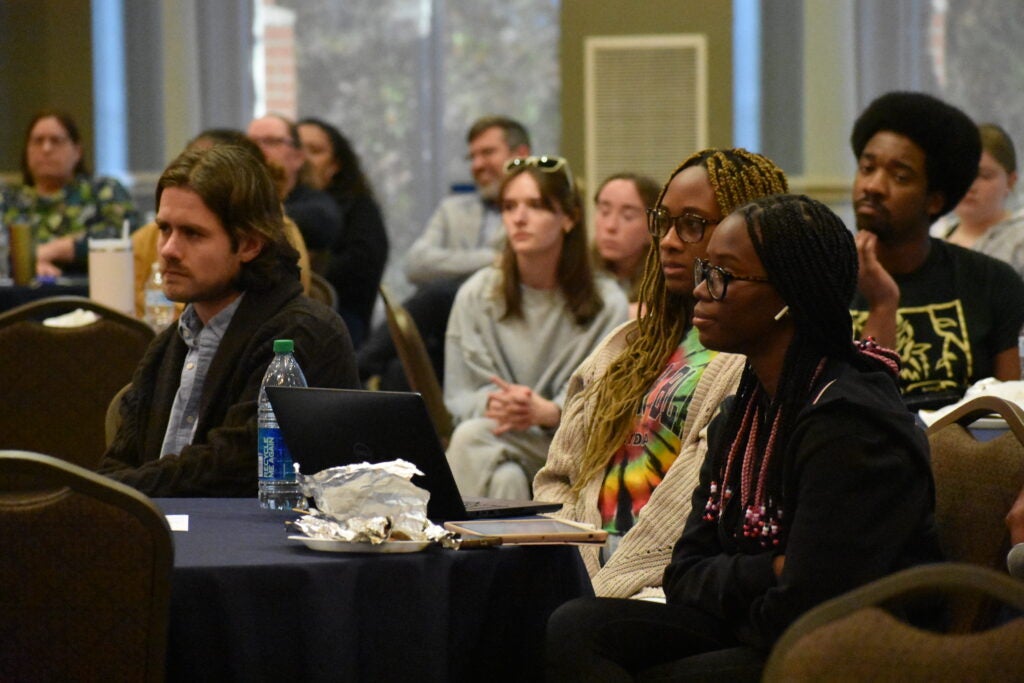
A former local prosecutor, who refused to identify himself, said his experience in the legal system made it clear to him that the decision regarding a murderer’s death was less about soothing the victim’s family and their corresponding trauma, and more about maintaining society’s future peace and security.
In response, Sullivan said he believes capital punishment only allows people to play the role of God, and interfere or prevent God’s plan to save or change hearts.
Following the question and answer portion of the talk, Joia Thorton, a representative of FLOCC, said she hoped attendees would consider supporting the HB1014 bill that seeks to change Georgia law related to the death penalty by lowering the standard of proof for intellectual disability.
Encouraged to attend the event by a professor providing extra credit, Augusta University sophomore Samantha Osuoha said she found the program extremely informative and interesting.
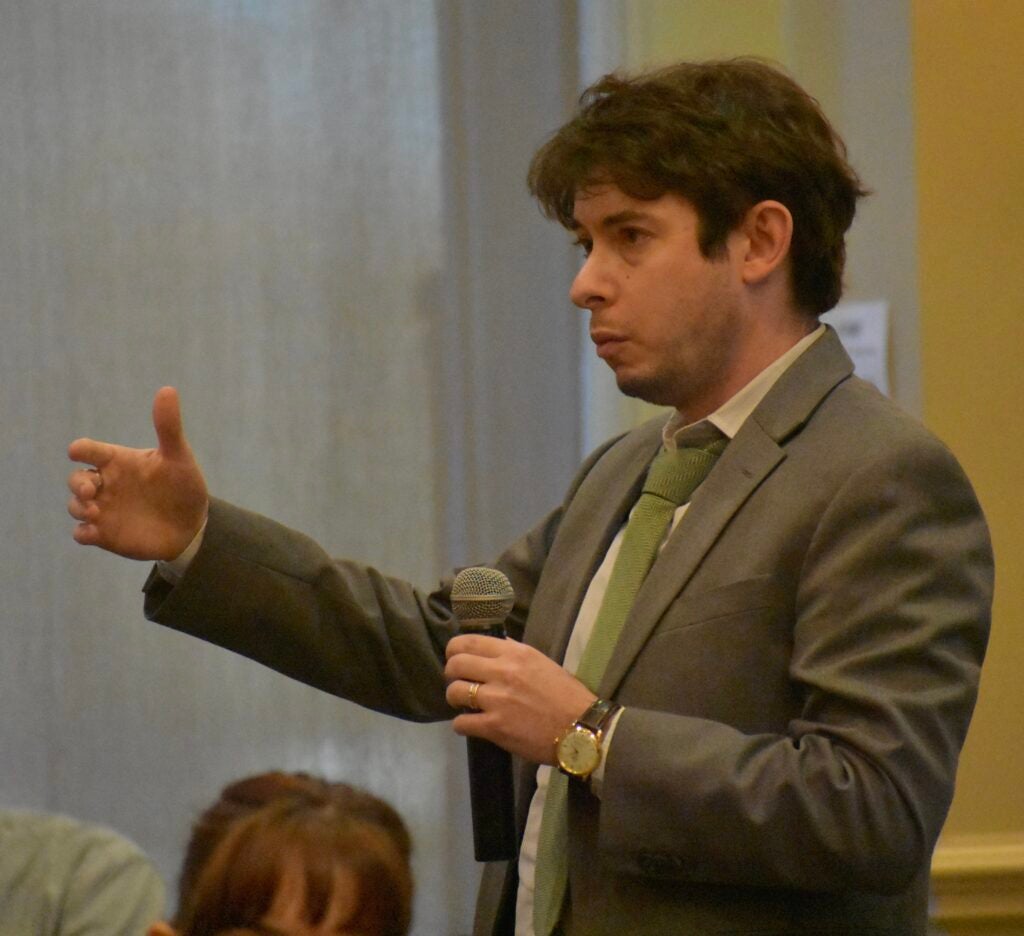
“I’m glad I came … I didn’t realize how prevalent the death penalty was in certain areas and states,” she said. “The death penalty is very controversial, but I think it’s much harder for people like Rev. Sullivan to consider killers as actual human beings. It’s definitely something I’ll take away from this.”
As several organizations work together to abolish the death penalty and replace it with effective and constructive solutions, national manager for Concerned Conservatives about the Death Penalty Demetrius Minor said became involved with the topic after thoroughly analyzing his own opinion on capital punishment and how that coincided with his pro-life position.
“It’s hard to be pro-life and simultaneously pro-death,” he said.
Daniél Mulherin, a Conservatives Concerned about the Death Penalty representative and event organizer, said she hoped students walked away with a better understanding of how capital punishment can affect all walks of life and occupations.
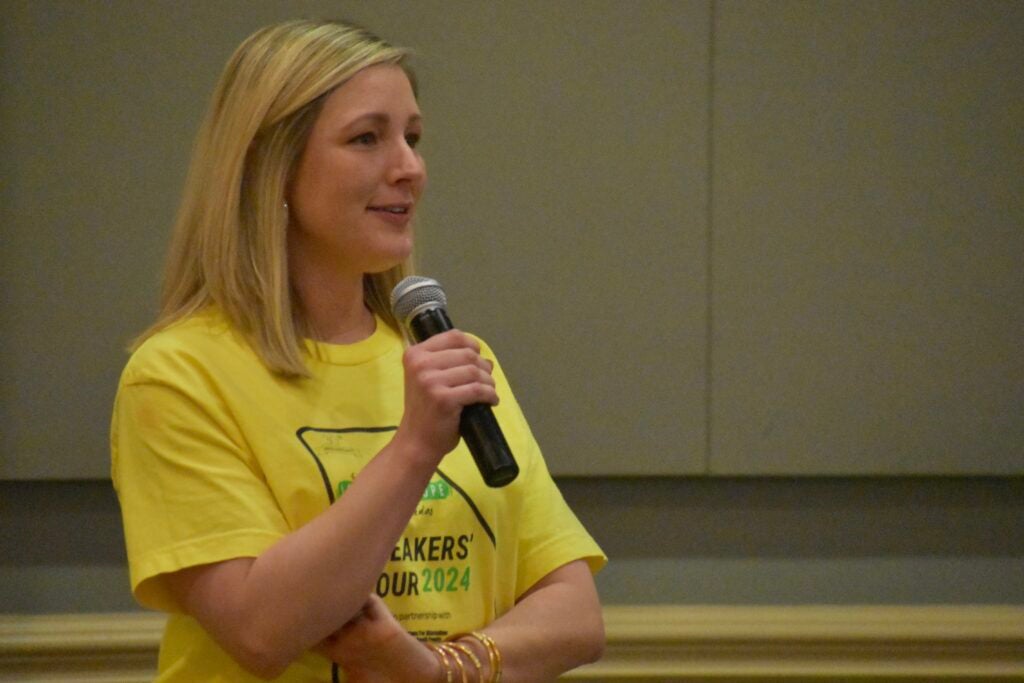
“What better place to hold this event than on a campus? We have students that are going into all types of careers for their future,” she said. “Believe it or not, a lot of those careers are going to overlap with the death penalty.”
Whether an individual works in mental health, politics or criminal justice, Mulherin said each sector is affected by the death penalty.
“These are issues that we’re going to have to make a decision and vote on,” she said. “So, everybody should know what’s going on – it does matter.”
For those who have never considered the issue or taken an affirmative stance, Mulherin said she hopes the discussion will encourage attendees to dig deeper into the topic, and sway students towards supporting programs that will allow for community healing by “ending cycles of trauma and violence.”
“We’re not here to force anybody to believe exactly the way we believe,” she said. “We just want everybody to be informed and educated about what’s going on, and the differently faulty aspects of our criminal justice system as it relates to capital punishment.”
To learn more about organization against the death penalty, visit: https://conservativesconcerned.org.
Liz Wright is a staff writer covering education, lifestyle and general assignments for The Augusta Press. Reach her at liz@theaugustapress.com

